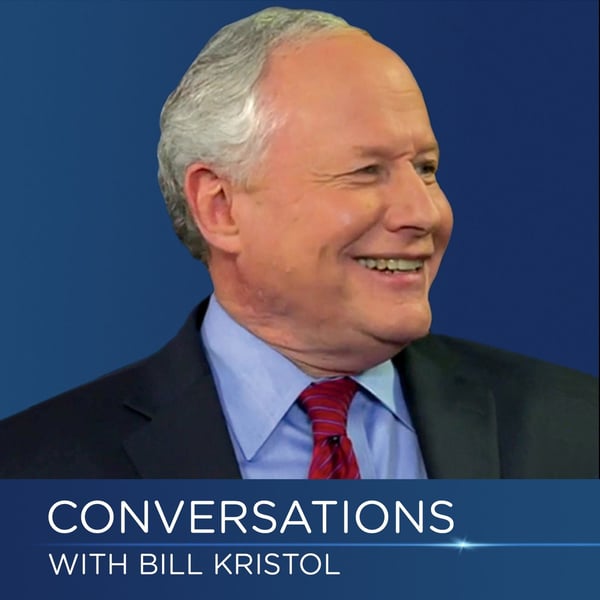Shep Melnick on Title IX: Equity, Due Process, and Free Speech on Campus
Conversations with Bill Kristol
Conversations with Bill Kristol
4.7 • 1.7K Ratings
🗓️ 2 December 2021
⏱️ 87 minutes
🧾️ Download transcript
Summary
Transcript
Click on a timestamp to play from that location
| 0:00.0 | Hi, I'm Bill Crystal. Welcome to Conversations. I'm very pleased to be joined today by an old friend, |
| 0:20.3 | Chef Malnick. I shouldn't say old, just a friend, Chef Malnick, not each other since grad school, |
| 0:25.2 | so that's a bit of a long time at the stage in our lives. But Chef is the Tip O'Neil Professor |
| 0:32.3 | of Political Science at Boston College, a very distinguished student of American politics and |
| 0:38.6 | government institutions, legislation, bureaucracy, and we're going to talk today about Title IX about |
| 0:45.2 | which Chef wrote a very fine book two, three years ago, The Transformation of Title IX, and I guess |
| 0:51.4 | you have a book forthcoming also in school, desegregation. Next year, I think so. Those are both |
| 0:56.0 | very interesting topics in their own right, substantively, and of course case studies in legislation, |
| 1:02.6 | implementation, bureaucracy, the courts, and so I hope we can use this discussion of Title IX to |
| 1:08.4 | kind of shed some light on sort of how American government works more broadly as well as |
| 1:13.2 | very interesting topics raised by Title IX. So Chef, thanks for joining me today. |
| 1:17.6 | Oh, it's a great pleasure to be here. And let's get to it. I really look forward to this |
| 1:23.7 | discussion. So the 50-year saga, I guess it's almost 50 years of Title IX, and give people some |
| 1:31.1 | sense. So what is Title IX? What is Title IX? Title IX of, you know, we'll talk about Title IX |
| 1:36.3 | without ever thinking like what piece of legislation is that actually the ninth title of? So give a |
| 1:41.2 | little history of how we got from there to here. Sure. It really is a great example of how |
| 1:47.0 | American politics works. Title IX was an insignificant part of the 1972 omnivast education |
| 1:57.4 | amendments. What can be more boring than that? It was added on the House, in the House Committee, |
| 2:05.6 | and then on the Senate floor, with virtually no debate. It simply says that in any program for |
| 2:13.5 | education that receives federal funds, those programs cannot discriminate or exclude on the |
| 2:20.6 | basis of sex. It was modeled on Title VI of the Civil Rights Act, a very important part of the |
| 2:28.0 | Civil Rights Act that said that any recipient of federal funds cannot discriminate on the |
... |
Please login to see the full transcript.
Disclaimer: The podcast and artwork embedded on this page are from Conversations with Bill Kristol, and are the property of its owner and not affiliated with or endorsed by Tapesearch.
Generated transcripts are the property of Conversations with Bill Kristol and are distributed freely under the Fair Use doctrine. Transcripts generated by Tapesearch are not guaranteed to be accurate.
Copyright © Tapesearch 2025.

